The Legacy of Shalom Boutiel: An Unforgettable Journey
Discover the captivating history of the Boutiel family and the untold stories of Yemenite Jews in Ein Kerem.
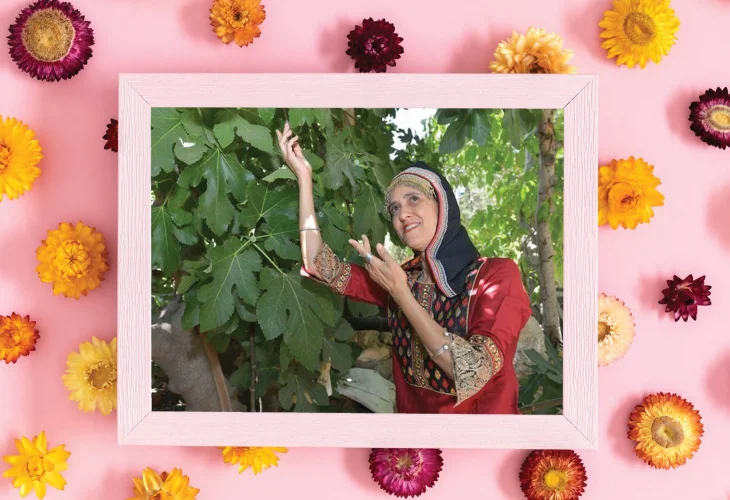 Kinneret Boutiel
Kinneret BoutielNestled between the hills of Jerusalem, immersed in a picturesque landscape, lies the village of Ein Kerem. It's a village where time has paused, history whispers from every corner, and each stone tells a story..
Here, in the heart of this enchanting village, lives Kinneret Boutiel, a descendant of a family deeply rooted in the local scenery for generations. She knows every alley, every stone, and every story hidden among the village houses. For her, Ein Kerem is not just a place of residence, but home, roots, and heritage. She opens her home to visitors, inviting them to taste the magic of the place, its rich history, and the unique Yemenite culture that so characterizes her family.
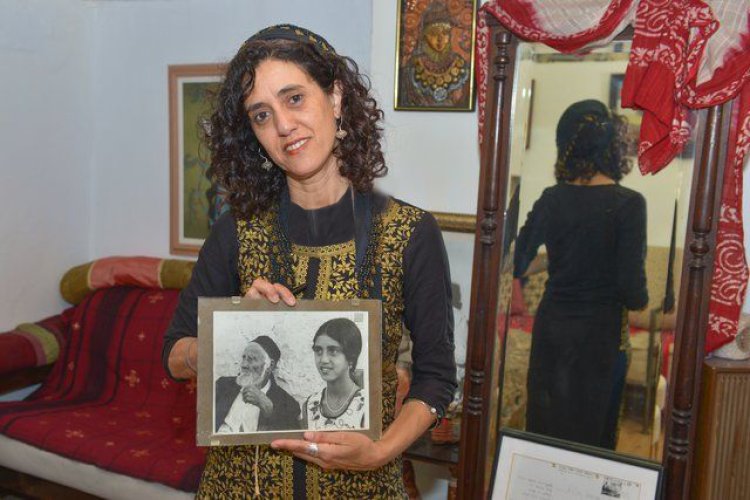
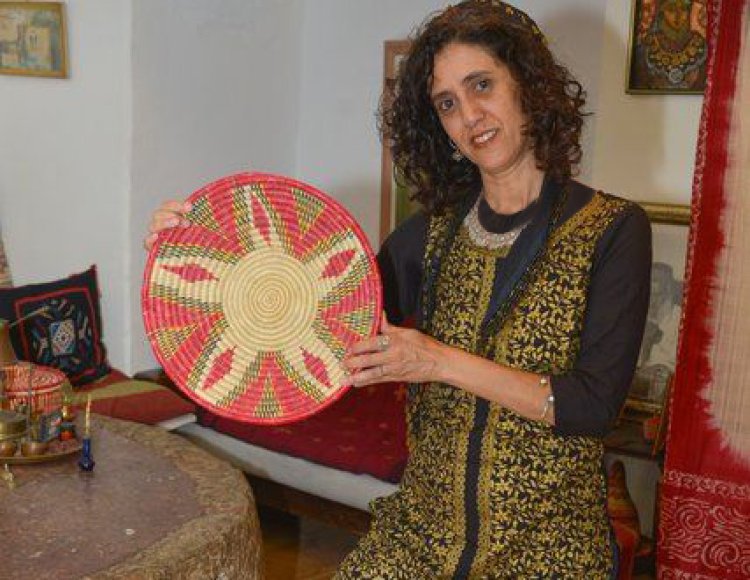
Roots in Ein Kerem
"People come to visit and often describe Ein Kerem as a 'deserted Arab village'," notes Kinneret, "I always stop to explain: 'Yes, Arabs left in 1948, but let's not forget the archaeological remnants of the Second and First Temple periods. I personally live in a house that was once an olive press, and it includes an ancient, gigantic millstone from bygone eras".
Kinneret hails from the Boutiel family of Yemenite origin, one of the most ancestral families in Ein Kerem. "I have a natural medicine clinic called 'Daughter of the Village', but I often drop everything to welcome visitors, hosting them at my home and offering them a taste of Yemen's heritage. When women’s groups visit, I even perform the traditional Yemenite dance, explaining each movement because each gesture corresponds to an everyday action a Yemenite woman would perform, like sifting grain, making *schug*, or preparing *hilbeh*.
But Kinneret's main stories revolve around her grandfather – Grandpa Shalom Boutiel, whom no tour guide coming to Ein Kerem would fail to mention. "Grandpa arrived with his family to the village after the War of Independence," she explains. "They traveled in two rickety buses filled with new immigrants from various places. The buses stopped in the village, but people refused to disembark, fearing highwaymen and thieves. Plus, they were promised 'Jerusalem residences', and Ein Kerem then wasn't technically part of the city, nor accessible to it.
"So the buses stood waiting until finally, Grandpa, the oldest of the group, decided to step off, and all other immigrant families followed – mostly Yemenites, North Africans, a few Iraqis, some Turks, and even four Polish families. Grandpa always emphasized that over the years they learned to live in remarkable harmony, fostering relationships that continue to bind us today".
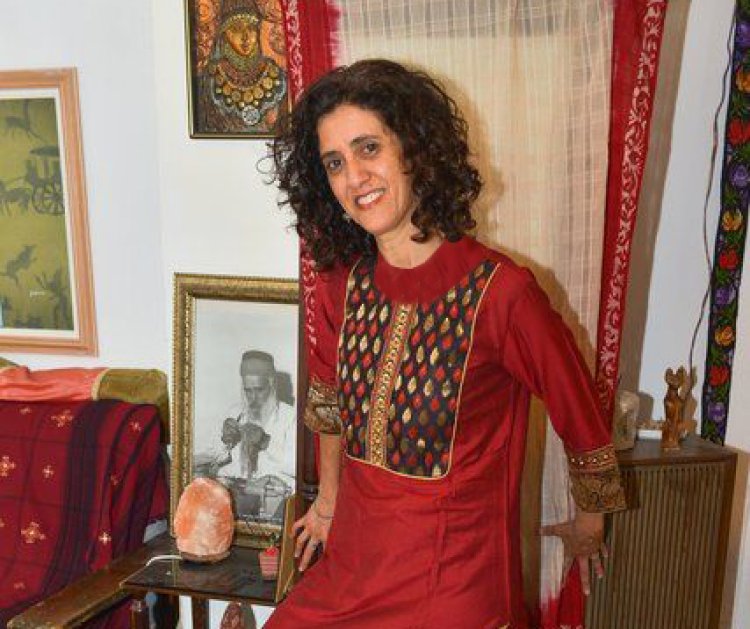
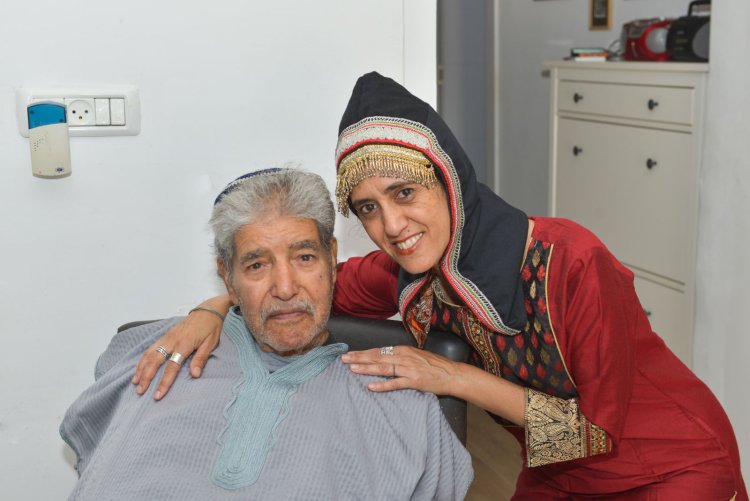
Grandpa's House
Kinneret grew up with her grandparents in the valley, now known as the 'Yemenite Valley'. "Those years are remembered as the happiest of my childhood," she says. "When Grandpa arrived in the village, he bought two goats and two sheep. But since he was a leather trader and shepherd in Yemen, he had vast experience, and soon had a large flock, much like our ancestor Jacob.
"Grandpa and my uncles would herd the flocks, while Grandma made us wonderful cheeses from sheep's milk. Remember, these were difficult times, some in the 1950s when food was rationed and limited, yet Grandpa and Grandma loved to share. When guests arrived, Grandma prepared 'salouf' – a thick Iraqi-style bread served with Yemenite soup, or with *s'maneh* – rich sheep milk cream considered very healthy.
"Every day, when my father finished work, he would visit Grandpa and Grandma, never missing a day. Today, I understand how inspiring the relationships between parents and children in our family, and generally in Yemeni culture, are, because they are extraordinary. By the way, I wasn't the only grandchild raised at their home; there were many because my grandparents had 13 children who gave them numerous grandchildren.
"Once, a journalist interviewed Grandpa, asking, 'How do you manage such a large family?' Grandpa looked to the heavens and replied succinctly, 'This is Hashem, my best friend.' For above all, he had simple actions and a pure belief in Hashem".
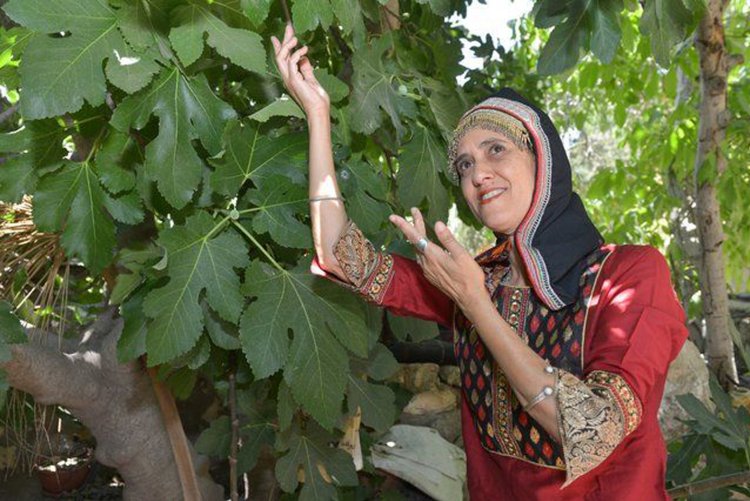
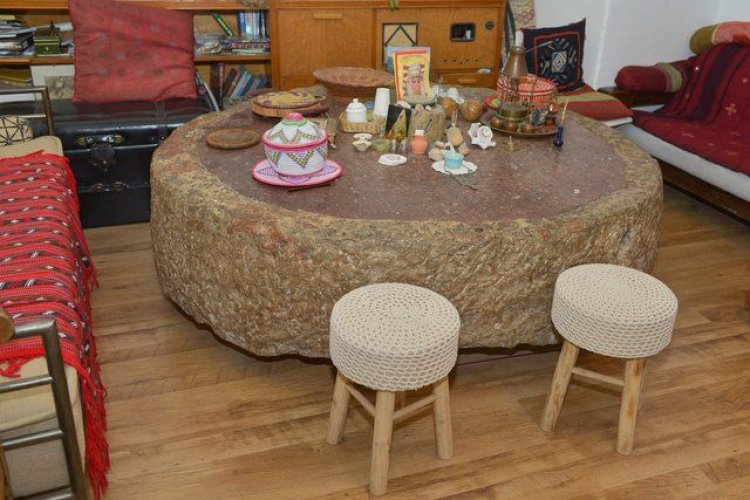
The Plight of Yemenite Jews
Kinneret also shares a poignant historical tale about her family: "Unfortunately, not everyone knows, but Yemenite Jewry went through a great catastrophe centuries ago. It was in 1679 when a Yemeni Imam targeted Jews. He demanded they convert or face death, though he eventually 'settled' for expulsion.
"Thus occurred the 'Expulsion of Mawza', one of the greatest disasters in Yemenite Jewish history. That year, Jews were exiled to southern Yemen, to the barren, salty plains of Mawza. Due to severe conditions, including epidemics, diseases, and intense heat, only about 30% of the exiles survived and returned after a year. Among them was the great poet of Yemenite Jewry, Rabbi Shalom Shabazi, whose writings are testimonies to their challenging times.
"Grandpa told us that our family was greatly protected as during the expulsion, our ancestors went to another village, saving their lives as villagers claimed they 'rebelled against the regime', and thus, were considered heroes. This legacy gave our family the name 'Boutiel', meaning 'House of the Rebels'. It reflects how we were viewed, as relatively blessed compared to many Yemenite Jews who perished or didn’t return".
Kinneret mentions that her grandfather repeated the story often, saying if it isn't spoken about, it would be forgotten. "Sadly, you can see there are almost no people aware of the 'Plight of Yemenite Jews', even among history enthusiasts, which is a shame," she asserts.
Grandpa Shalom Boutiel, Kinneret's grandfather, passed away at the good age of 105. "He never took any medicine or saw a doctor, yet he was always healthy and joyful until the age of 105," she recounts. "For me, he is an admirable figure, and there's no one who visits Ein Kerem without hearing about him. Personally, I feel Grandpa is almost here with us. The valley remains, my uncle still raises goats, and I live in the family house. So next time you visit Ein Kerem, I hope you learn more about its history, and you are welcome to visit, stay, and hear about it up close".

